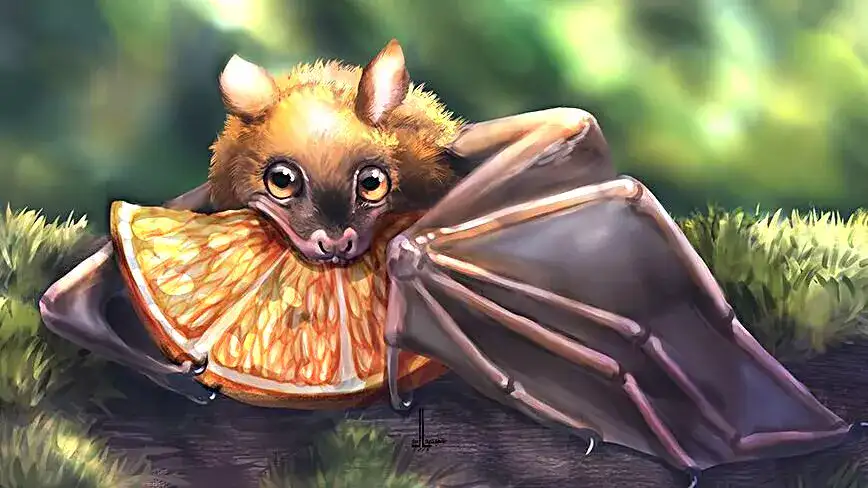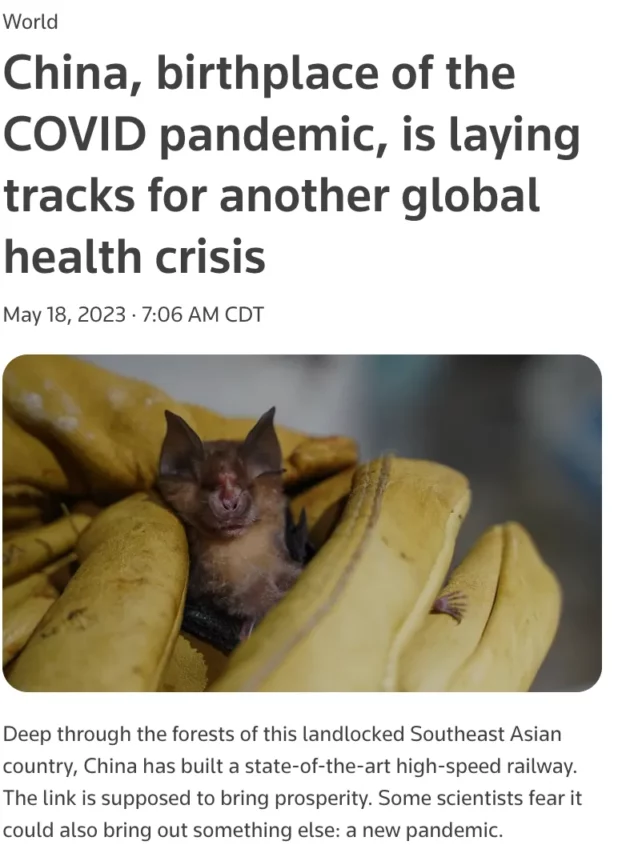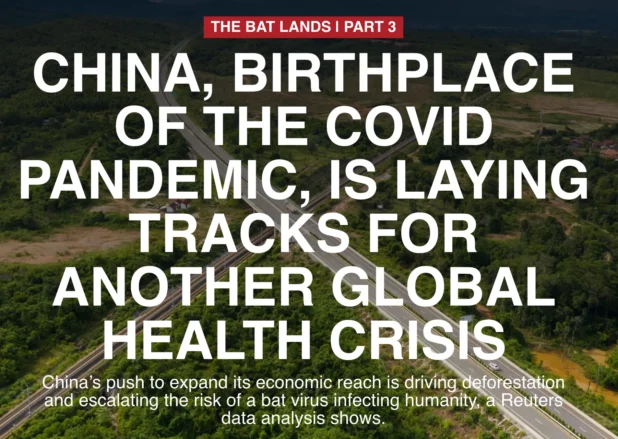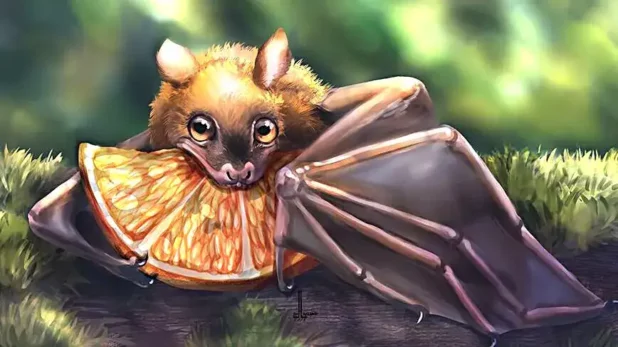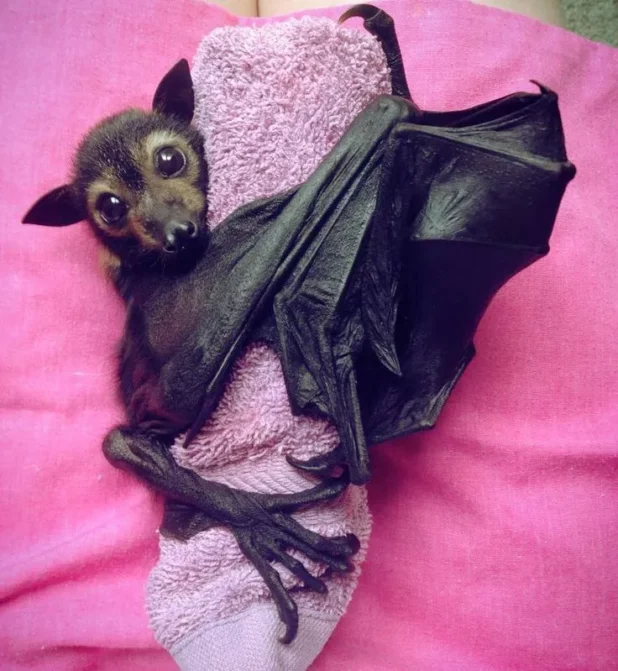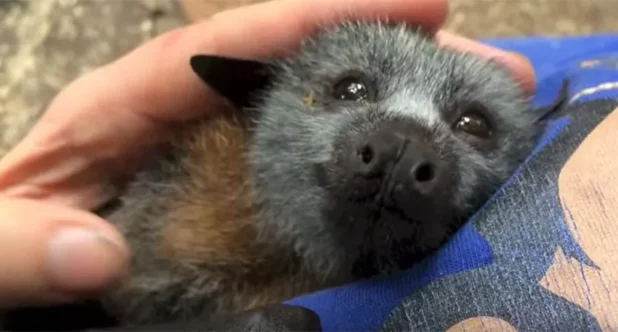Oh, China is doing something evil again?
That’s not surprising, because as we all know: CCP communist party regime autocracy. They hate us for our freedoms.
It is truly only the diabolical Chinaman that could think of a plot so devious as to spread new viruses by helping developing countries through investment.
The country that spawned two global coronavirus pandemics in the last two decades is laying tracks for a future one here.
China financed the China-Laos Railway, a high-speed link from its southern border to the capital of Laos. It cuts a 422-kilometer swath through forested terrain that is home to dozens of species of bat, some of which host viruses similar to the one that caused the current pandemic.
Built to speed the export of commodities to China, the rail link runs roughly parallel to a new superhighway.
Development and tourism already are accelerating along the routes – and, scientists warn, increasing the risk that a new pandemic pathogen will emerge from a remote place into a world more interconnected than ever.
Exacerbating the risk, bats are part of the Lao culture and economy. The government grants concessions to harvesters who collect guano, or bat droppings, from the plentiful caves that dot the region. The guano is used as fertilizer.
Bats are part of the local diet for some people. The animals are sold grilled and skewered at markets and street stalls. Scientists found coronavirus in samples taken from one market.
Deep through the forests of this landlocked Southeast Asian country, China has built a state-of-the-art high-speed railway. The link is supposed to bring prosperity. Some scientists fear it could also bring out something else: a new pandemic.
China already has been the source of two pandemics since the turn of the century, both linked to a family of viruses found in bats across Southeast Asia. The Asian titan is now disrupting habitats in neighboring Laos that are home to bats hosting similar pathogens. They include coronaviruses closely related to the one that caused the ongoing COVID-19 pandemic that has killed at least 7 million people worldwide.
The China-Laos Railway is a project of Beijing’s historic “Belt and Road” infrastructure initiative to tie the world to China. Following decades of Chinese-led development in Laos, the railway crosses the border via the Friendship Tunnel, at the edge of China’s Xishuangbanna Prefecture. It then extends 422 km to the Lao capital of Vientiane. Along its way southward, it cuts through rich rainforest, leafy mountains, and previously untouched karst – intricate landscapes of soluble-rock peaks and caverns that are a preferred habitat of the region’s bats and have long been a barrier between them and human settlements.
For Laos, a one-party communist state with close ties to its giant neighbor, the railway is meant to spur development, boost tourism, and forge even greater links with China. Since the train began operating in December 2021, it has carried more than 14 million passengers and over 18 million metric tons of goods, according to the Chinese government.
“The Laos-China railway corridor has greatly benefited Laos in numerous ways, particularly the government’s effort to develop its economy and upgrade the living standard of the people,” wrote an unidentified official from the Lao embassy in Washington in an email to Reuters.
Some scientists say the rail line is worrisome because development along its once-remote trajectory is accelerating tree loss and bringing humans into closer contact with bats. The train also enables the fast movement of people and goods from rural to populous areas, where viruses can easily multiply and spread. That includes people or goods that may have had contact with live animals in a wildlife trade that has been linked to past outbreaks.
“This is the lesson,” said Chris Newman, a biologist at Oxford University who studied COVID-19’s origins. “It was infected people who took the virus to every corner of the world – so quickly that there was absolutely nothing we could do to contain it.”
The Lao embassy official didn’t answer detailed questions about the disruption of Lao bat habitats and the health risks that could arise because of the railway, but said: “We have never before heard of such information or come across any reliable reports that identify Laos as among the highest risk places in the world.” The official added: “We would like to reassure you that there is no such issue happening in Laos.”
We have to stop China from investing in developing countries.
As we all know, people who believe in true democracy values understand that freedom can only come from violent revolution and war. It’s an unfortunate fact of our values of who we are that the road to true utopia is littered with corpses, but what can we do?
We believe in democracy.
We have no other choice, because that is the values of who we are in a rules-based order.
